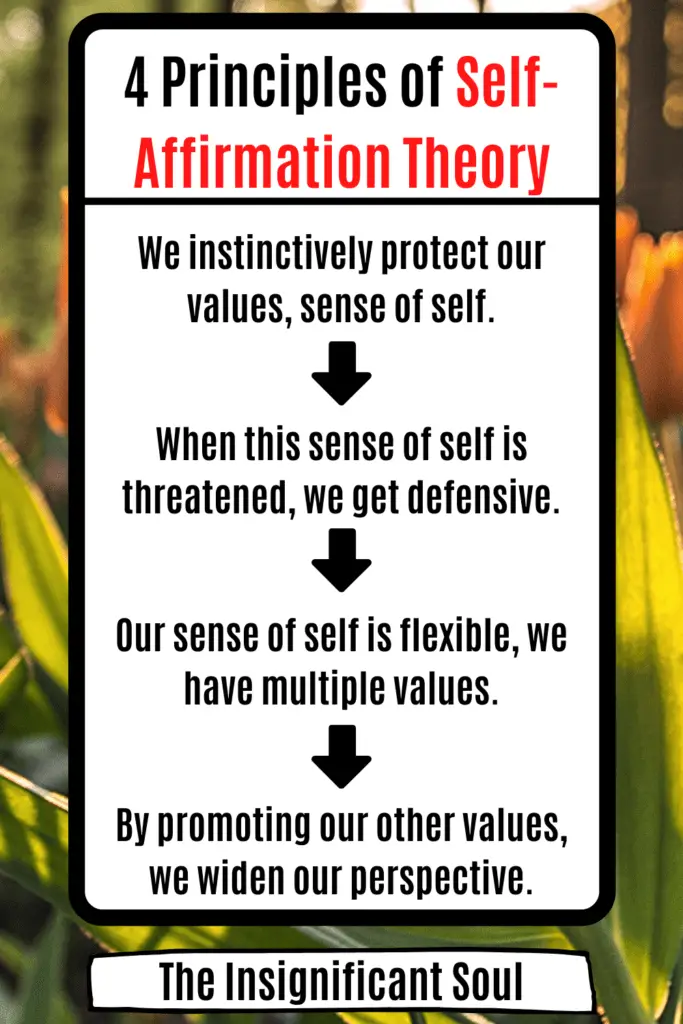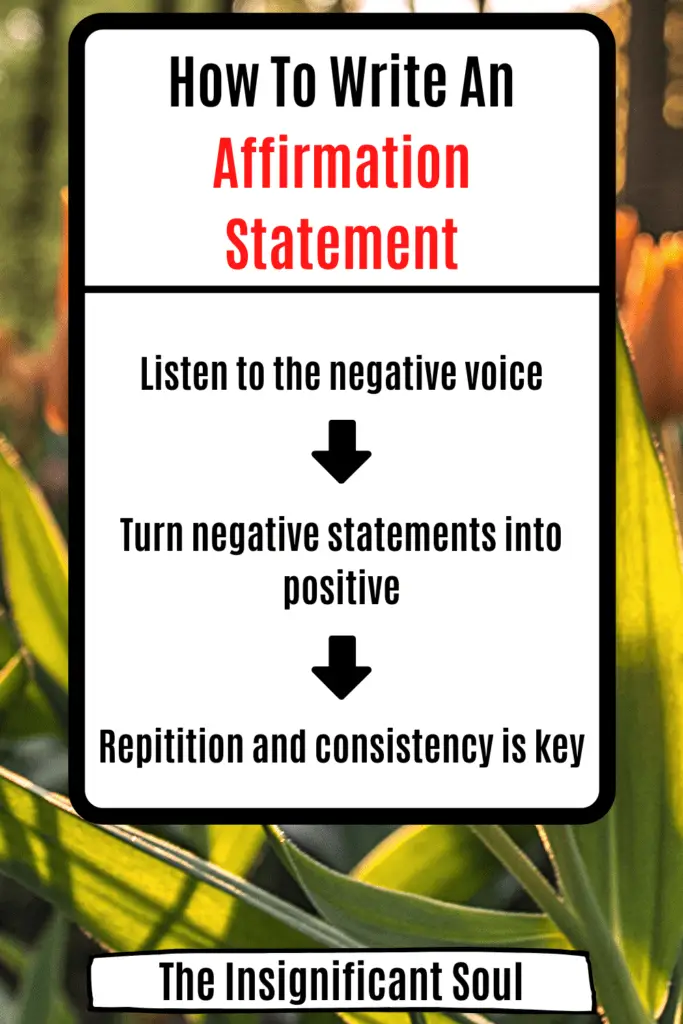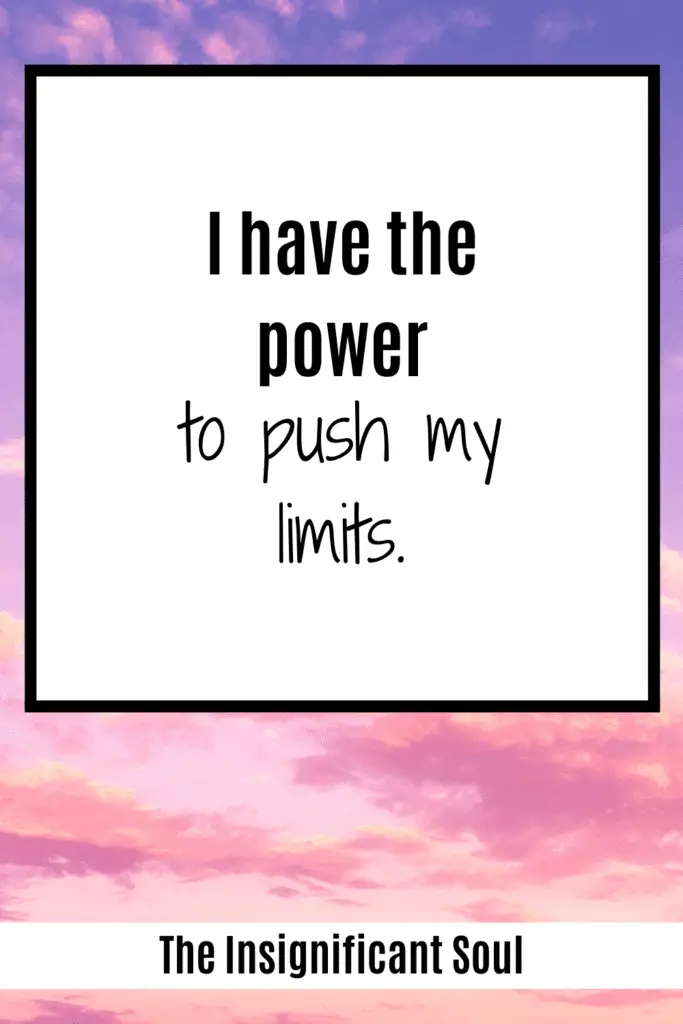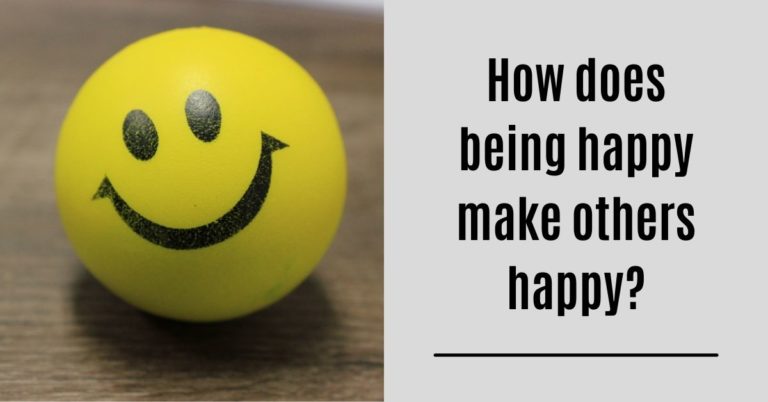50 Morning Affirmations To Start An Amazing Day
So, for the past few weeks, I’ve been looking into new methods of self-care. It wasn’t long before I stumbled across morning affirmations. They seem to be the hot and trendy self-care idea that is recommended on almost every site.
As someone who has a scientific background, I was sceptical. On the surface, morning affirmations just looks like repeating good things to yourself at the start of the day. It seems like the bare minimum of self-care. How useful can that actually be?
Today, we’ll take a deeper look at the scientific theory behind morning affirmations. In addition, we’ll figure out how to practice them properly. Finally, I’ll be sharing 50 examples to use every morning that will help jump start your day. Let’s get into it.

Table of Contents
What are morning affirmations?
According to a clinical hypnotherapy centre in Cardiff, affirmations are:
‘Powerful, positive statements that aim to direct your conscious and subconscious mind, challenging previously help unhealthy and negative thinking patterns’
When I read this definition, it got me thinking. I’ve been engaging in a lot of self-defeating, negative talk lately. I believe it’s a consequence of the year we’ve had. There were so many goals and plans that I set out at the beginning of the year. Many of those have had to take a back seat as we wait for the world to return to normal.
I haven’t taken this ‘failure’ well. Instead of acting where I can, I’ve internalised the defeat. I wasted so much time this year. I could have done more. Maybe I’m just not smart enough. These thoughts fill my head constantly as I battled to get through the day. Last week we talked about how to be kind to yourself, but I had never considered using affirmations.
5 Brutally Honest Ways To Be Kind To Yourself – The Beauty In Being Insignificant
The thought of challenging these negative patterns using positive affirmations is quite attractive, but it still sounds like wishful thinking. Let’s get a bit deeper into it.
Is there any scientific support for morning affirmations?
I was surprised to find out that affirmations are based on a psychological theory, self-affirmation theory. Now, we’re getting somewhere.
The theory suggests that if people reflect on the values that are most important to them, they are less likely to have anxiety and stress when confronted with experiences that endanger their sense of self. I’ll be going through the 4 main principles that play into this theory, and see if they can be applied to myself.
Source: The Psychology of Self‐defense: Self‐Affirmation Theory – ScienceDirect
We protect our self-integrity
Firstly, it assumes that people instinctively try to protect their self-integrity. But what exactly is self-integrity? It’s how we see ourselves. The perception of ourselves as a good, valuable member of society.
That ‘value’ can take many forms and is determined by the individual. For me, I place a high value on intelligence. No, I don’t mean being book smart but being able to critically analyze information. Knowing what warrants further investigation, presenting that information in a digestible format. That’s intelligence. It’s easy to sound smart. What’s difficult is making complex information sound easy. I think that there is no greater skill to have. A high amount of my self worth is centred around developing this expertise.
Threats against this self-integrity would be any experiences that implies that my intelligence is not up to par. Failure in a test. Rejection from a conference/job. Self-affirmation theory suggests that in these cases, I’ll do anything to maintain the positive global image of myself that I’ve created.
We get defensive
When faced with those negative experiences that endanger self-integrity, self-affirmation theory claims that our most common response is to become defensive. By doing this, we attempt to minimize the threat.
This is something that I struggle with a lot. I don’t mean to do it. It’s very unconscious in nature but I do get very defensive when I’m confronted with such an experience.
If I fail, I have a bad habit of trying to pretend like I didn’t want the opportunity. If I had tried, I would have got it. I’ll avoid the topic of conversation with everybody. Keeping the failure only to myself. If you want to learn more about why you have to be willing to fail to succeed. check out this blog post.
How To Find Your Passion In Life – The Beauty In Being Insignificant
Our sense of self is flexible
Moving on to the next principle. This theory suggests that we often have multiple senses of self. In my case, in addition to my academic skills, I am also a supportive family member. I take great pride in my ability to help my family through difficult times. Self-affirmation theory claims that when one sense of self is attacked, we tend to rely on another one to uphold our overall positive image.
I never noticed this, but this has happened to me multiple times. Whenever I fail in university, I tend to put academic opportunities on the back burner. I’ll focus on other things in my life, especially my family. The distraction from the failure is very welcomed. Now, I realise that what I was doing was using this other source of positive self-validation to offset the loss from failure. I wasn’t facing it head on.
When we promote these our other values, we broaden our perspective
Finally, self-affirmation theory highlights that when we engage in activities that promote our other values, we get a higher sense of self. When we face a threat, we tend to have tunnel vision. Completely focused on what’s directly in front of us.
By reminding ourselves of our flexible, broad sense of self, we are able to change our perspective. We won’t see ourselves as failures just because one aspect of our life isn’t working out. There are other parts that we can rely on.
Summary of the 4 principles of Self-Affirmation Theory

In summary, when we combine all those principles together, it paints a larger picture. I’ll use myself as an example. When I’m face with failure, an experience that threatens my personal value (academic skills), I’m filled with anxiety and stress.
This motivates me to act in self-defence. However, this ‘defence’ doesn’t tackle the problem head on. In my case, I avoid and minimise the failure. Anything not to confront this threat. But this does nothing to help me learn from the experience. It doesn’t allow me to grow.
Self-affirmation theory claims that by affirming another unrelated, yet important value, I’ll be able to shift my perspective. So, by focusing my attention on the other positives in life, such as my family, I’ll be reminded that I am valuable in multiple ways. My sense of self doesn’t rest solely on a singular activity. As a result, I’ll be able to act less defensively when I fail. I’ll be able to look past it and move forward effectively.
If you want to read more on the theory behind self-affirmation. Check out these research articles.
Self-Affirmation Theory and the Science of Well-Being | SpringerLink
How do I write a morning affirmations statement?
Now, let’s create an affirmation statement together. There are 3 common stages that people go through when writing an affirmation statement.
Listen to the negative voice
The first step focuses on making notes of negative qualities. This is going to be a difficult as it involves letting that negative voice in your head run wild for a bit. It doesn’t mean you believe what the voice says but note down what it is saying.
I care too much what others think. I always put other people’s needs before my own. I’m afraid that I’m unlovable. I feel like an imposter at work. These are a just a few of the negative thoughts that run through my head on a constant basis. You don’t have to share this list with anyone but do keep it.
Turn the negative into a positive
Now, we get to the actual creation process. We’re going to spin those negative features into a positive statement. It’s important to pick positive words that resonate with you.
Don’t simply pick a word simply because you found it in a thesaurus. Take a minute. Think about the words you would want to hear from someone else.
I care about my own needs. I am good enough. I am worthy of love. I deserve to be here. These are my examples that I’ve created based on what was on my negative qualities list. Give it a try.
If you want to learn more about finding the good in bad situations. Take a look at this blog post.
How To Find The Good In Bad Times – The Beauty In Being Insignificant
Repetition is key
As I mentioned in last week’s post about kindness, your voice is a powerful thing.
5 Brutally Honest Ways To Be Kind To Yourself – The Beauty In Being Insignificant
You hear it the most out of every single voice in the world. As a result, your brain places a high value in what comes out of your mouth. With great power, comes great responsibility as a wise uncle Ben once said.
For this last step, I want you to speak your affirmations for 2 minutes at the start of the day. You don’t have to be in front of a mirror to do it. I do mine when walking in the park. In the few moments when I open my eyes after waking up.
The location isn’t important. Consistency is. Make a habit of where and when you speak these morning affirmations. Soon enough, you’ll start to believe them. Give it time. This is one of my goals for the new year. To be consistent with my affirmations. If you want some help setting goals, I’ve got a free pdf guide that will help you out.
Link: Free Goal Setting Statement (mailchi.mp)

50 examples of morning affirmations to start an amazing day
I do recommend that you spend the time to create your own affirmations, but I understand that this may not always be realistic. So I’ve compiled a list of 50 affirmations that you can use on a daily basis.
1) I have the power to make a change.
2) I give myself the space to grow.
3) I will not let failure break me.
4) I will not allow fear to hold me back.
5) I trust myself to make the right decision.
6) I choose to find the hopeful way to look at this.
7) I refuse to give up.
8) I have the strength to take on this new challenge.
9) I have the power to push my limits.

10) I have a lot to offer the world.
11) I have many skills to offer.
12) I work hard and know my worth.
13) I have my own definition of success.
14) I am the creator of my own happiness.
15) I am open to accepting all forms of abundance.
16) I have everything I need to make a start.
17) I am a magnet for miracles.
18) I trust the guidance of the universe.
19) I trust that things will work out for me.
20) I believe that this will pass.
21) I have the ability to attract success.

22) I am becoming more successful as times goes by.
23) I have a lot of potential.
24) I am surrounded by people who support me.
25) I have released all limiting beliefs about myself.
26) I am enough
27) I know I can accomplish my goals.
28) I have the drive to finish this project.
29) I am creative and think about of the box.
30) I am worthy of my dreams.
31) I’m allowed to do what I want with my life.
32) I am not free of bad habits.
33) I am resilient.
34) I love facing challenges.
35) I am always in the right place at the right time.
36) I am a gift to the world.
37) I have unique skills to offer.
38) I am disciplined.
39) I am productive.
40) I deserve to be successful.
41) I choose to be optimistic.
42) I am thankful to see another day.

43) I have a growth mindset.
44) I no longer fear the unknown.
45) I am trying my best.
46) I have a purpose.
47) I am proud of myself.
48) I am stronger than my excuses.
49) I am patient with myself.
50) I have got this.
Did you learn something new today? Have you ever tried morning affirmations before? Let me know in the comments below. Make sure to join our email list to get access to our weekly newsletter and to share this post with your friends/family.




Self talk is so important! Thanks for this great post and so many amazing affirmations!
It really is so underrated! Thank you for reading!
So many beautiful affirmations here! I love your explanation of affirmations too. They can be such a powerful way to start your day!
I never knew the background behind them. It was refreshing to learn about and I agree about how strong they are!
Nicely explained and all wonderful affirmations much needed during these time. Wonderful share!
thank you so much. It’s been a rough year and I believe we all need a bit of self love right now.
I want tot start doing this tomorow – amazing tips for an inspirational morning!